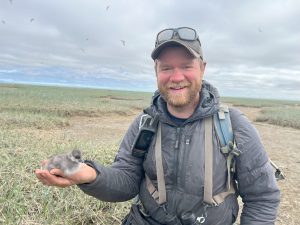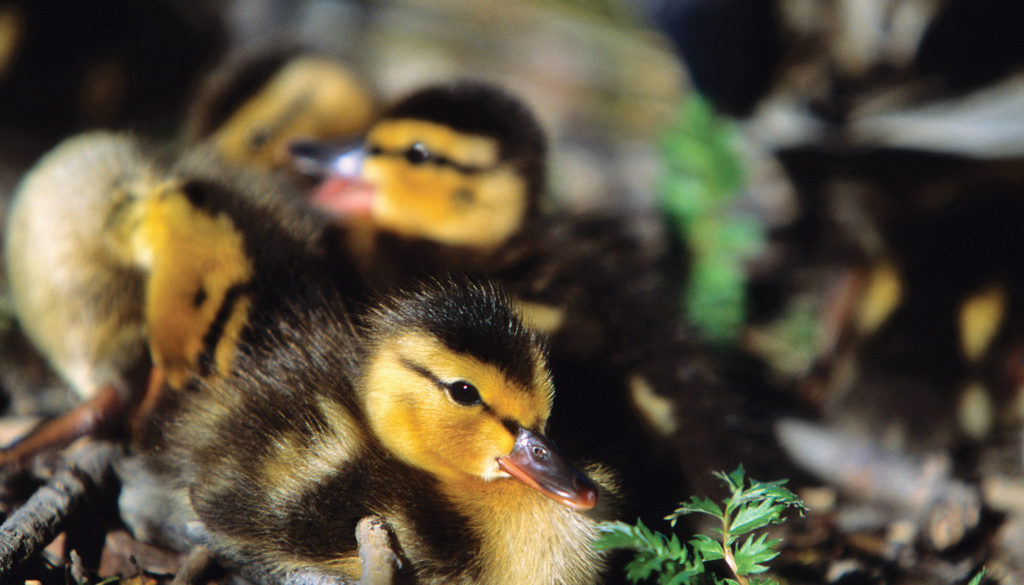The purpose of the fellowship is to develop critical scientific information about waterfowl and wetlands, and to contribute to the training of future waterfowl and wetland conservation professionals.

The recipient of this fellowship is Jordan Thompson for his PhD research at Colorado State University. His research will help identify the causes and life-history consequences of long-term changes in body size of black brant.
Previous research has shown that the structural body size of black brant has declined over time. However, it is unclear whether this decline is a result of evolutionary changes or deteriorating habitat conditions for developing young. Jordan will use long-term demographic data for black brant on the Yukon-Kuskokwim Delta in western Alaska to quantify the relative contributions of genetics and developmental conditions to declines in body size and the effects of declining body size on population dynamics. Jordan’s research will help to understand potential adaptive responses of waterfowl to changing environmental conditions.
About the Fellowship
This fellowship is open to graduate students enrolled at any North American University. Subject matter for the student’s research can deal with any aspect of waterfowl or wetland biology that promises to advance conservation. Fellowships will be awarded based upon the following criteria:
- The qualifications of the applicant
- The scientific soundness of the student’s research proposal
- Originality and creativity in study design
- Expected contributions of the research to furthering waterfowl conservation
- The achievability of the work.
One award of up to $9,500/year (U.S. funds) is available to provide personal or research support for the successful applicant. The award is renewable for up to two additional years for PhD students, once for Master’s students, assuming annual approval of a satisfactory progress report and the need for continuing financial support.
For additional information on this fellowship, download the Graduate Fellowships Background document.
Past Fellowship Winners
2024: Laura Wallace, M.Sc. Assessing long-term changes in sex ratios of duck populations, University of Montana
2022-2023: Nick Masto, PhD. Mallard distributions, habitat selection, and movement behavior relative to spatiotemporal changes in landscape energetics and hunting pressure, Tennessee Technological University.
2019-2021: Emily Tarsa, PhD. Seed-based wetland restoration following Phragmites removal: harnessing seed traits and systems modeling to reestablish lost avian habitat, Utah State University
2017-2018: Kyla Bas, MSc. Effects of spring phenology, density dependence and predator-prey cycles on productivity of montane and boreal-breeding ducks, University of Saskatchewan.
2015-2016: Amelia Raquel, MSc. Assessment of Factors Influencing Patterns of Duck Community Composition in the Prairie Pothole Region: Effects of Climate and Land Use, University of Saskatchewan
2013-2014: David Messmer, PhD. The Effect of Wetland Abundance, Spring Phenology, and Landscape Productivity on Breeding Ducks in the Western Boreal Forest, University of Saskatchewan
2010-2012: Brandt Meixell, PhD. Prevalence, variation, and effects of low pathogenic avian influenza in waterfowl, University of Minnesota
2008-2009: Pauline Bloom, MSc. Factors Affecting Mallard Duckling Survival in Western Canada: Implications for Conservation Planning, University of Saskatchewan



